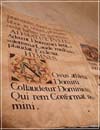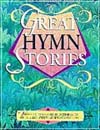

|
|


|
 |

Just As I Am
John 6:37
WOODWORTH | Hymn History | Bible Passage
|
Author: |  |
Charlotte Elliott, 1789-1871 |
|
Musician: | |
William B. Bradbury, 1816-1868 |
 |  Play MP3 • Click to listen to the music for this hymn. Play MP3 • Click to listen to the music for this hymn.
|
Just as I am, without one plea
But that Thy blood was shed for me,
And that Thou bidd'st me come to Thee,
O Lamb of God, I come, I come.
Just as I am, and waiting not
To rid my soul of one dark blot,
To Thee, whose blood can cleanse each spot,
O Lamb of God, I come, I come.
Just as I am, tho' tossed about
With many many a conflict, many a doubt,
Fightings and fears within, without,
O Lamb of God, I come, I come.
Just as I am, poor, wretched, blind:
Sight, riches, healing of the mind,
Yea, all I need in Thee to find,
O Lamb of God, I come, I come.
Just as I am, Thou wilt receive,
Wilt welcome, pardon, cleanse, relieve;
Because Thy promise I believe,
O Lamb of God, I come, I come.
Just as I am— Thy love unknown
Hath broken ev'ry barrier down;
Now to be Thine, yea, Thine alone,
O Lamb of God, I come, I come.
|


|
 |
HYMN HISTORY:
It must be true to say that no sacred song or hymn has been more used to bring sinners to the feet of Jesus, than this one.
Sung by grand choirs in vast crusades as hundreds have come or by congregations, large and small, as one's and two's have come; this hymn has moved the hearts of multitudes.
"Just As I Am," rings with a clear, positive note. It invites the sinner, just as he is, with all his sin, in all his unworthiness, despite his fears, though poor, wretched and blind, to come to the Saviour.
That's an invitation which is absolutely scriptural! We don't need to wait until our lives have been straightened out before we come to Christ. There's nothing we can do which will ever make us more acceptable in God's sight. The Bible clearly teaches that God loves the sinner, just the way he is, and wants him to come like that.
Only Jesus Christ can deliver us from the guilt and penalty of sin. Only He can solve all the problems of life. Only He can give us peace and joy and hope for the future. It was out of her feelings of frustration and hopelessness that the daughter of an Anglican minister in Brighton, England, wrote the words of this fine hymn.
One day in 1833, when Charlotte Elliott was in her forty-fourth year, she was feeling unusually depressed and alone. The other members of her family had gone off to a church function while she, an invalid and bedridden, remained at home.
Before her illness she had lived a happy, carefree life enjoying its many pleasures and gaining a measure of popularity, as a portrait artist.
Now, all of this past and stricken with the sickness which was to plague her for the rest of her life, she felt utterly useless and cut off. In addition, although she had been a Christian for many years, she began to have doubts about her relationship with the Lord. How could she be sure that all was well with her soul?
In her distress she began to list scriptural reasons for believing that she was, indeed, a child of God. She recognised the power of the Saviour's precious blood. She remembered His promise to receive all who come to Him by faith; and His ability to pardon, cleanse and save.
As she meditated on these great truths her heart was warmed and very soon Charlotte Elliott, who was also fond of writing poetry, was putting down her thoughts in verse:
Just as I am, without one plea,
but that Thy blood was shed for me,
And that Thou bidst me come to Thee,
O Lamb of God, I come, I come.
It's just here that we encounter a new slant to the story.
Charlotte Elliott's brother was anxious to start a school to benefit the children of poor clergymen, and had organised a bazaar to raise funds.
It seemed that everybody in the town had helped with the project. Everybody, that is, except Charlotte, who was so stricken with paralysis that she could barely drag herself around her room.
So she published her new poem "Just As I Am," in the hope that from its sale she could contribute something to her brother's school fund.
The poem was instantly successful and was soon selling all over England in large numbers as well as being translated into a number of foreign languages.
Charlotte Elliott never did enjoy good heath for the rest of her life. She remained bedridden until the Lord, at last, called her home when she was eighty-two years old.
However, before her death she received more than a thousand letters of thanks and compliments from people who were grateful that she had written "Just As I Am."
Just as I am, Thou wilt receive,
Wilt welcome, pardon, cleanse, relieve;
Because Thy promise I believe,
O Lamb of God, I come, I come.
BIBLE PASSAGE:
37 All that the Father giveth me shall come to me; and him that cometh to me I will in no wise cast out.
|
|
|

|

|